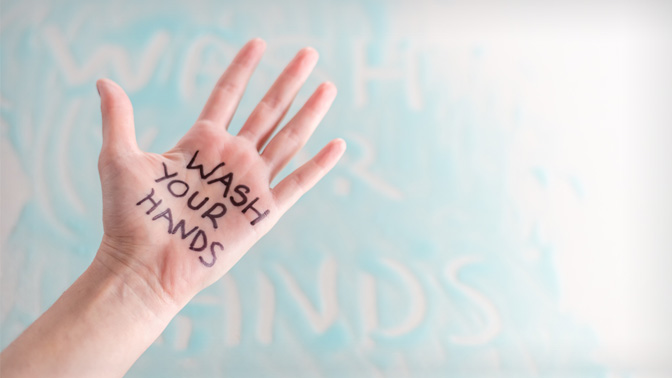
One of the most effective ways to stop the spread of COVID-19 is through practicing good hand hygiene.
Because of this, it is particularly important to understand what affects whether good hand hygiene is practiced—particularly in a health care setting.
“Currently, hand hygiene compliance is audited. This means that an auditor shows up unannounced, observes hand hygiene for a short period of time, then leaves with the results,” says Dr. Alon Vaisman, a UHN Clinician in Quality and Innovation. “We wanted to see whether the act of auditing affected how often staff washed their hands.”
It is well known that people behave differently when they know they are being watched—a phenomenon known as the Hawthorne effect.
To test the Hawthorne effect on hand hygiene in a health care setting, Dr. Vaisman ran the study at two transplantation hospital wards. Auditors visited at random times and recorded hand hygiene practices for an hour at a time. These findings were compared to hand hygiene practice in the absence of auditors, which was measured using remote sensors.
“When health care workers were not being observed, hand hygiene was practiced at 40% of all potential opportunities. When auditors were present, this doubled to around 80%,” says Dr. Vaisman. “Notably, the Hawthorne effect was limited to only the short and rare occasions that auditors were present. It also changed based on time of day and location of the auditor.”
“It’s important to note that this study was run under normal work conditions with no threat of a pandemic. While our findings cannot be generalized to the current extraordinary circumstances, they do suggest that in a post-COVID-19 world, we will need to do more than just auditing—new, more effective ways to promote best practices are needed,” says Dr. Susy Hota, UHN’s Medical Director, Infection Prevention and Control, and one of the study authors.
To address this issue, UHN is already exploring innovative approaches to improve hand hygiene, including the use of a wearable badge that vibrates and beeps to remind health care workers to wash their hands.
“We cannot rely on being observed as a reminder for hand hygiene to be performed. We must find more effective ways to promote hand hygiene to protect ourselves, colleagues and patients,” says Dr. Vaisman.
This work was supported by the Toronto General & Western Hospital Foundation.
Vaisman A, Bannerman G, Matelski J, Tinckam K, Hota SS. Out of sight, out of mind: a prospective observational study to estimate the duration of the Hawthorne effect on hand hygiene events. BMJ Qual Saf. 2020. doi:10.1136/bmjqs-2019-010310.

Dr. Alon Vaisman (L) is a UHN Clinician in Quality and Innovation and lead author of the study. Dr. Susy Hota (R) was senior author and serves as UHN’s Medical Director, Infection Prevention and Control.




